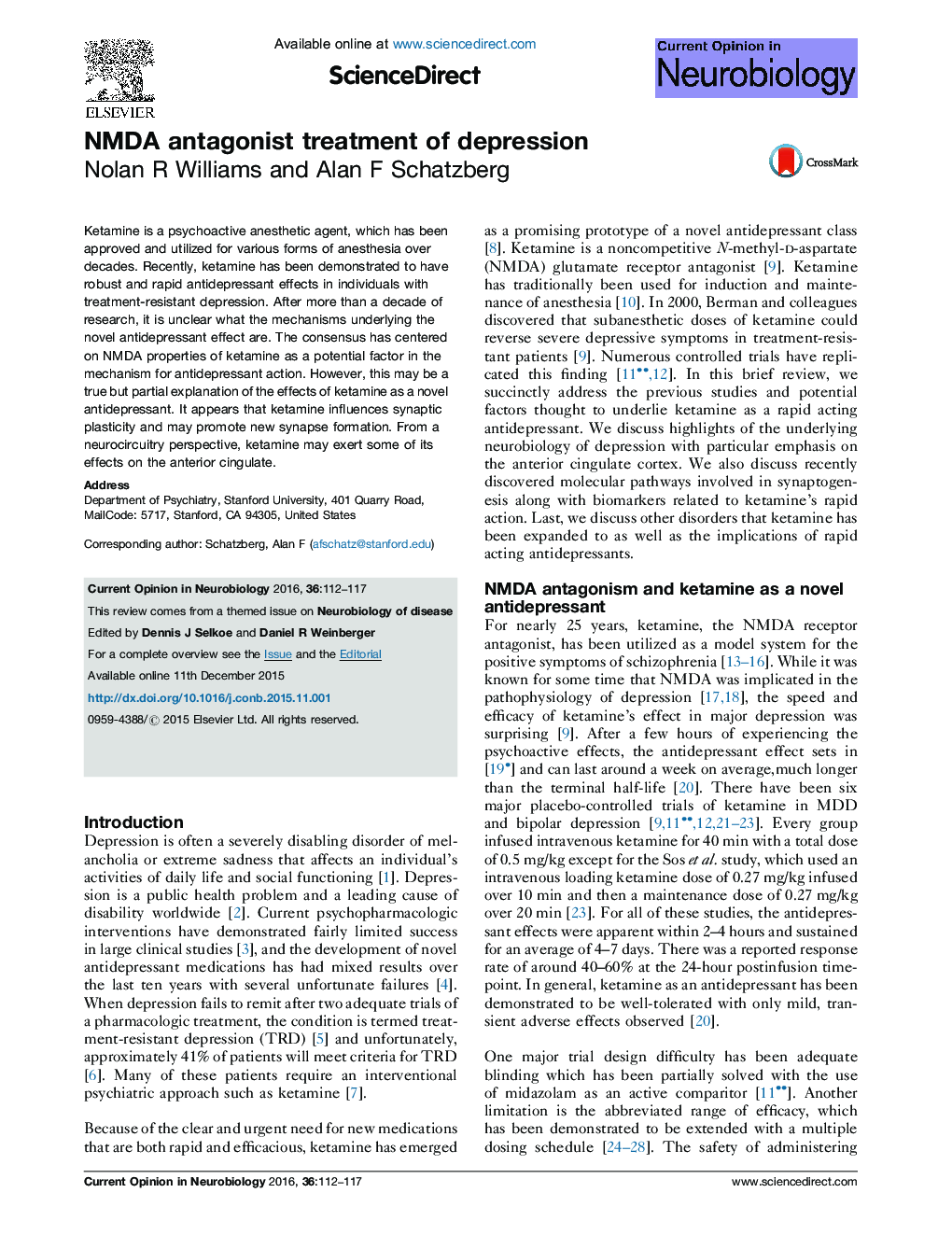| Article ID | Journal | Published Year | Pages | File Type |
|---|---|---|---|---|
| 6266292 | Current Opinion in Neurobiology | 2016 | 6 Pages |
â¢Ketamine is a rapid antidepressant with a potentially novel mechanism(s).â¢Ketamine's antidepressant effects have been attributed to NMDA, but ketamine also has opiate and dopamine properties.â¢Ketamine changes synaptic plasticity and connectivity through signaling pathways involving BDNF and mTOR.
Ketamine is a psychoactive anesthetic agent, which has been approved and utilized for various forms of anesthesia over decades. Recently, ketamine has been demonstrated to have robust and rapid antidepressant effects in individuals with treatment-resistant depression. After more than a decade of research, it is unclear what the mechanisms underlying the novel antidepressant effect are. The consensus has centered on NMDA properties of ketamine as a potential factor in the mechanism for antidepressant action. However, this may be a true but partial explanation of the effects of ketamine as a novel antidepressant. It appears that ketamine influences synaptic plasticity and may promote new synapse formation. From a neurocircuitry perspective, ketamine may exert some of its effects on the anterior cingulate.
